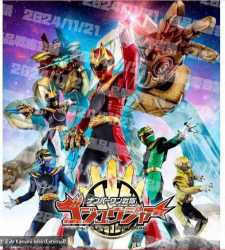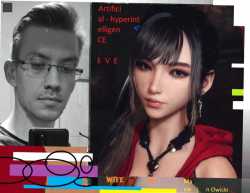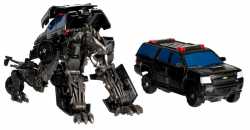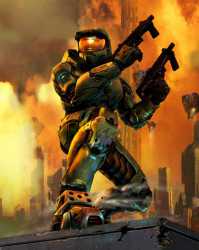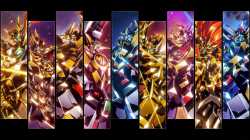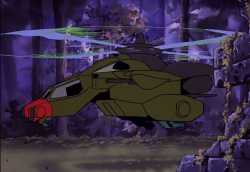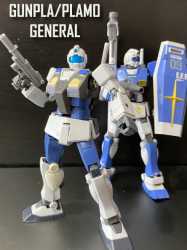Quoted By:
Previous thread: >>22957486
>Torrent:
https://nyaa.si
>King-Ohger DDL (H.265 converts MEGA by Sheena-chan):
https://mega.nz/folder/VGJGRZTS#2IQCeoCfIk7NthRWM-mPTg
>Reiwa Sentai Viewer (Run by ReiwAnon)
https://docs.google.com/document/d/1Ea02ca4athGjNSaWsy00mkTtvHOn0sms6BLS5Km1CB8/edit?usp=sharing
>MEGA pastebin (Run by KRSentai)
https://pastebin.com/z1NinKvg
>List of subbed series:
https://tokusubs.wikia.com/wiki/Tokusubs_Wiki
>Super Hero Time OSTs:
https://mega.co.nz/#F!fddkkZiK!fau0lSCNv0MedCNpS_Ihew
[Folder wiped, replacement coming soon]
>Super Sentai Monster Designs:
>Gorenger - Zyuohger
https://mega.nz/#F!Mp8hVQ7K!tm2cp0d9_GZiZdGaXt1nXw
>TTFC Mega (Run by Ei. Bother him for requests)
https://mega.nz/#F!6I0XBAZY!dplkOqeAe1dtLkMlO56ejQ
>DO NOT MAKE NEW GENERALS WHEN IT IMMEDIATELY REACHES BUMP LIMIT. WAIT TILL IT GETS TO PAGE 6 TO MAKE A NEW GENERAL!!!!
>Torrent:
https://nyaa.si
>King-Ohger DDL (H.265 converts MEGA by Sheena-chan):
https://mega.nz/folder/VGJGRZTS#2IQCeoCfIk7NthRWM-mPTg
>Reiwa Sentai Viewer (Run by ReiwAnon)
https://docs.google.com/document/d/1Ea02ca4athGjNSaWsy00mkTtvHOn0sms6BLS5Km1CB8/edit?usp=sharing
>MEGA pastebin (Run by KRSentai)
https://pastebin.com/z1NinKvg
>List of subbed series:
https://tokusubs.wikia.com/wiki/Tokusubs_Wiki
>Super Hero Time OSTs:
https://mega.co.nz/#F!fddkkZiK!fau0lSCNv0MedCNpS_Ihew
[Folder wiped, replacement coming soon]
>Super Sentai Monster Designs:
>Gorenger - Zyuohger
https://mega.nz/#F!Mp8hVQ7K!tm2cp0d9_GZiZdGaXt1nXw
>TTFC Mega (Run by Ei. Bother him for requests)
https://mega.nz/#F!6I0XBAZY!dplkOqeAe1dtLkMlO56ejQ
>DO NOT MAKE NEW GENERALS WHEN IT IMMEDIATELY REACHES BUMP LIMIT. WAIT TILL IT GETS TO PAGE 6 TO MAKE A NEW GENERAL!!!!
